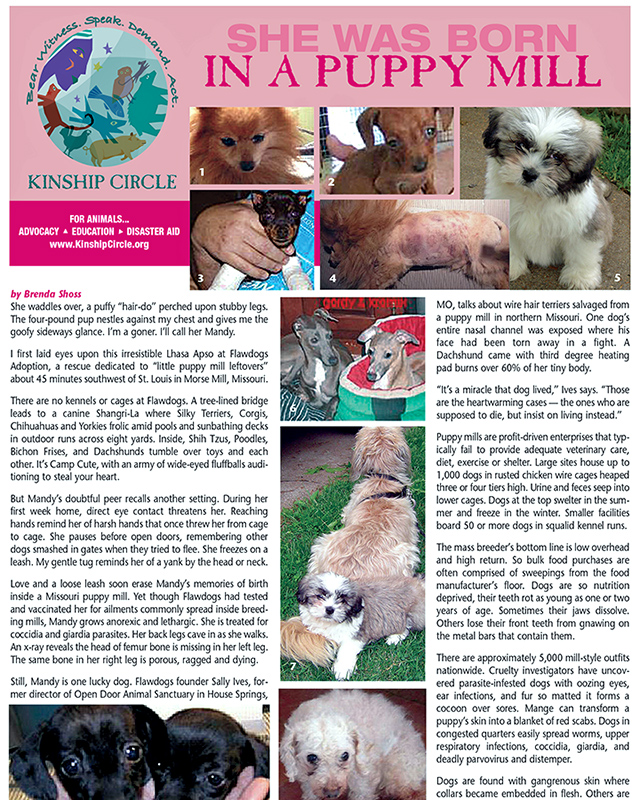
|
THIS ALERT IS CLOSED. It’s a live archive
for background,
writing example, historical record.
Pass PAWS To Police Puppy Mills The Pet Animal Welfare Statute of 2005 (S. 1139/H.R. 2669), PAWS Bill, amends the Animal Welfare Act to fortify the Secretary of Agriculture's capacity to oversee the commercial breeding industry. Present law categorizes high volume breeders who sell directly to the public as "retail pet stores" and exempts them from Animal Welfare Act guidelines for licensing and animal care. Thus, a breeder who sells animals via the internet or newspaper ads functions with minimal oversight. Kittens, puppies and other companion animals easily cross state borders with no information about the decrepit surroundings in which they were raised. This loophole undermines a key intent of the AWA and deceives consumers, who are conned into spending huge fees on animals with health complications. PAWS requires breeders to obtain a USDA license if they sell directly to the public and annually raise six or more litters that generate over 25 puppies or kittens. She Was Born In A Puppy Mill |
|
Puppy mills are profit-driven enterprises that typically fail to provide adequate veterinary care, diet,
exercise or shelter. Large
sites house up to 1,000 dogs in rusted chicken wire cages heaped three or four tiers high. Urine and feces
seep into lower cages.
Dogs at the top swelter in the summer and freeze in the winter. Smaller facilities may board 50 or more dogs
in squalid kennel
runs. There are approximately 5,000 mill-style outfits nationwide. Cruelty investigators have uncovered
parasite-infested dogs with
oozing eyes, ear infections, and fur so matted it forms a cocoon over sores. Mange can transform a puppy's
skin into a blanket of
red scabs. Dogs in congested quarters easily spread worms, coccidia, giardia, and deadly parvovirus and
distemper. Puppy mills
function primarily in Missouri, Nebraska, Kansas, Iowa, Arkansas, Oklahoma, and Pennsylvania. Missouri leads
the way, with an
estimated $40 million per year in puppy mill profits.
|










